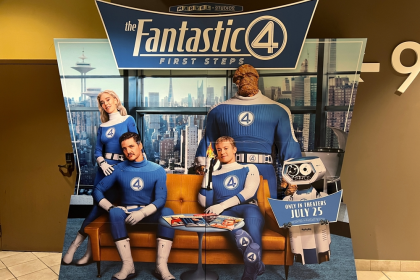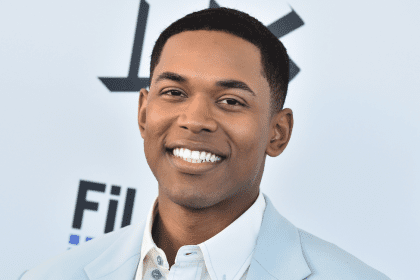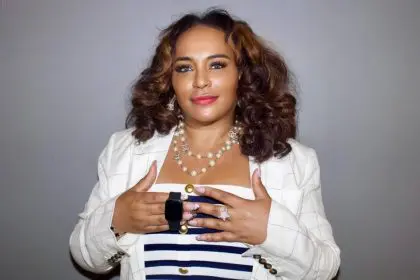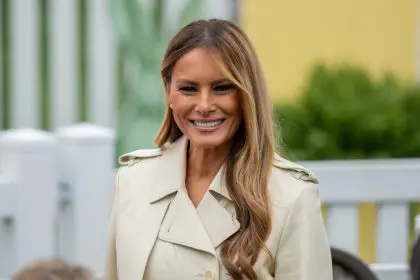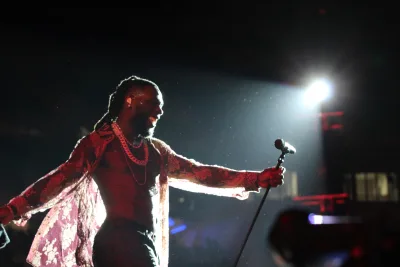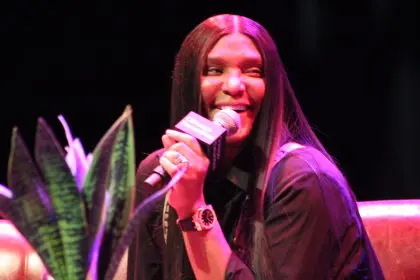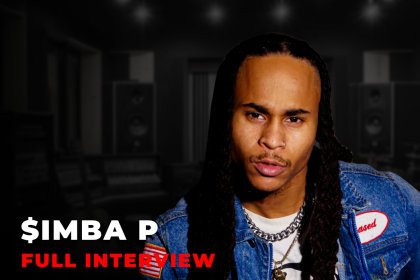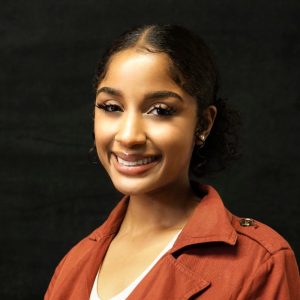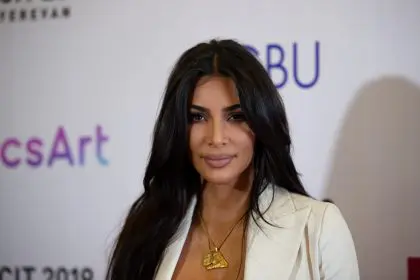Isoul Harris is a writer, editorial director, and multimedia content producer. Harris previously worked as a reporter for People, brand strategist for American Express Platinum, and the editor-in-chief of UPTOWN. As the former head of content for DEI at Warner Brothers Discovery, he launched the global newsletter and digital portal The Inclusive.
The Morehouse and NYU graduate also co-created Modern Luxury’s EDITION magazine with Jay-Z’s entertainment agency Roc Nation. As an executive editor-at-large at EBONY, the media veteran recently crafted the content for the iconic brand’s special Hip-Hop 50 Issue in collaboration with Mass Appeal, the media collective founded by Nas.
He is also the author of the Nicki Minaj biography Hip-Pop Moments For Life.
Harris co-produced the documentary Donyale Luna: Supermodel with Melissa Kramer and Melanie Sharee. Directed by filmmaker Nailah Jefferson, the film documents the journey of the first Black model to appear on the cover of Vogue.
Harris shared what viewers can expect from the film.
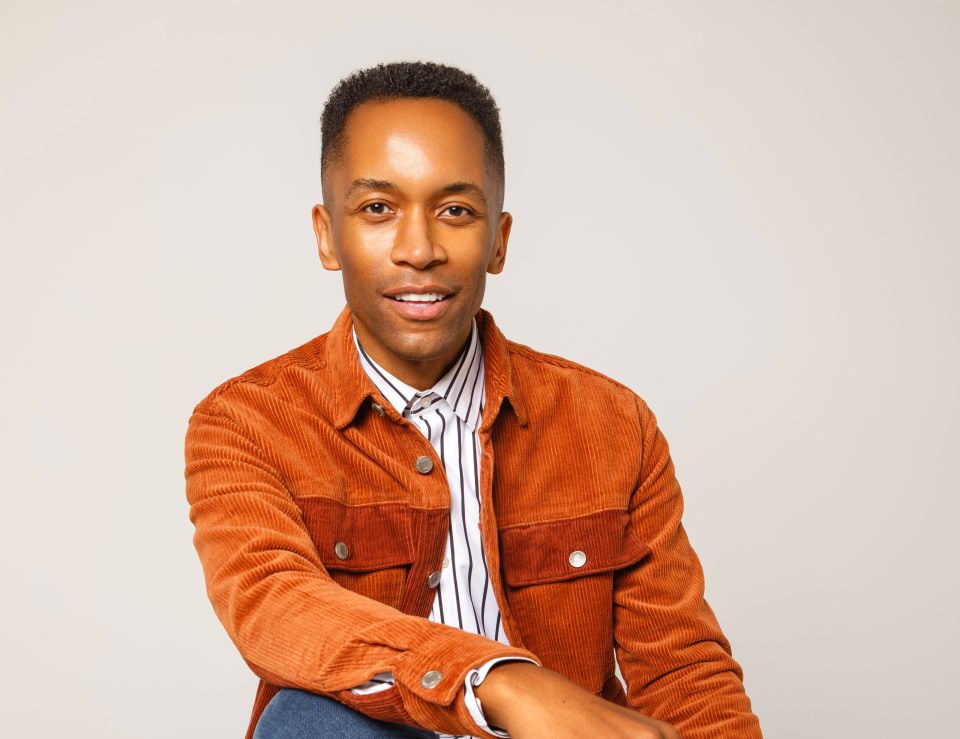
What can we expect from the film Donyale Luna: Supermodel?
We debuted the film at the American Black Film Festival this past June, which was a great moment, being that the ABFF was the reason why this film was made. To give you a backstory on how this came about, I’m the former editor-in-chief of Uptown Magazine. When I was at Uptown, Melissa Kramer was the creative director who was also a producer on this film. We had the charge of doing a Black History Month story, and we just wanted to find someone who no one knew about. We were tired of doing the usual suspects.
We wanted to introduce our readers to someone new. Shortly after, Melissa came back with the name Donyale Luna, which she discovered at an art exhibit. She told the group that she was the first Black woman on the cover of Vogue. We were like, “What are you talking about? Beverly Johnson is the first Black woman on the cover of Vogue.”
We were like, “How do we not know this?” Especially [given] that most of us have worked in fashion and editorial for the majority of our careers. We knew nothing about this woman who was so pioneering in the late ’60s, so we did the story. When the story came out, I said to Melissa, “This story is bigger than Uptown; we need to do a documentary on this film.” I always say I did not have any film experience, but as I look back on it now, I realize that creativity is transferable. If you are creative in one aspect, you can be creative in another.
I spent my career putting together magazines, and so we were putting together a story for this film. Luckily, Donyale Luna’s former manager saw the article in Uptown and reached out to us; he’s also in the film. God rest his soul, he passed away before the film came out, but he was able to be in the film, and it kind of steamrolled from there. We got in touch with Donyale Luna’s daughter, husband, friends, people who worked with her, and people who admired her. I’ve said before in another interview, it’s kind of like a village. People have rallied around us with such love, care, and concern. Everyone wanted Donyale’s story to be told in the right way because they have so much respect for this woman who gave her life to live her life.
How should people watch the film with empathy versus judgment?
One of the things that we had multiple conversations about while making this film was that we decided we had to approach this film with as little judgment as possible. We can’t bring our own view or any kind of bias we have about this woman to this film; we had to present her as she is. We had to bring her voice to life and allow the audience to make their own judgments, assumptions, or whatever about her, but we couldn’t bring our own because all of us are living lives; we’re all trying to figure it out.
We all live messy lives, and life is messy, period. We’re all just trying to do the best we can with what we know. When we know better, we do better. When you look at Donyale Luna, she was a woman who was fantastic in so many ways. She created this character, this persona, in high school. I think oftentimes, we look at our White counterparts in this industry, and when they create personas, they are often considered to be geniuses, innovative, and imaginative.
When Black people and Brown people create personas, we are labeled frauds; we are told we don’t like ourselves, that we are self-loathing, and all these things. But we want to live imaginative, great, fabulous lives as well. There’s nothing wrong with that. James Baldwin once said, “To be a Black American in this country and live a creative life, you have to create a persona in order to exist in this world.” That’s what Luna did. She was so ahead of her time, in so many different ways, not just in fashion, but she was writing children’s books, and she was a creative director.
She was photoshopping before there was Photoshopping, and we learned that the movie Mahogany was based on her life. She wrote a screenplay about her life and took it to Hollywood, so she was just so forward-thinking, yet she faced so many barriers, but she kept going. That’s the most revolutionary thing you can do in this world: to fight to be yourself, because this world, from the moment you get up and leave your house, or even just sit in your house, tells you that you’re not enough, and you need to be something else.
This woman refused to [do that] and to accept that. She was just living to create, and she loved beauty. I feel like we have to look at her story with no judgment. I was reading online, and someone made a comment that said, “Donyale Luna did not want to be Black. I’m going to pass on this movie next.” I thought wow that person is now preventing themselves from seeing, realizing, and experiencing the beauty of this woman’s story and her evolution because of their judgment, and they’re not hurting anyone but themselves. I just think we need to approach everything with no judgment because that’s something we’re going to learn.
How can other producers look at this body of work and see what you’ve learned along the journey?
It’s all about just the very thing I’m learning. I think you have to first be in a space to receive; if you go into things thinking that you know everything, or even know something, you’re not going to learn anything. I was having this conversation with one of the executives on HBO, and she was just saying how me and the other producer on this film were brave in bringing forth this idea. This woman doesn’t know me, and I’m like, ‘Brave, what are you talking about?'” She said, “No, you’re very brave because … I do this everyday, so it’s normal for me, but for people like you who don’t do this everyday, for you to come into this space, that’s bravery.”
I never saw it that way, and I didn’t feel like we were doing anything brave; we were just doing what we loved.” We were just committed to the art, to the project, and committed to telling this woman’s story, but I guess if you don’t do this every day, it’s bravery. I would say just be committed to the art, to the story, and to the reason why you’re doing it, whatever that reason is, and just keep pushing forward because so many people are going to doubt you, and they’re going to try to deter you because they don’t see what you see. If they could see what you see, they would be doing it themselves. Don’t expect people to see what you see; just keep your eyes on the prize, and just keep moving forward. No matter what happens or what anyone says, because everything that can go wrong, will go wrong, just keep moving forward because when you move forward, you’re going to reach the goal.
Do you think it’s possible for a story like Donyale Luna’s to happen today?
I would hope so, but I feel like we still have a long way to go. There’s still so much work to be done, but I think her story will always be relevant because it’s a story about a woman fighting to be her authentic self. Even now, with social media, we’re still trying to live up to the images that we see, but it’s hard. It’s hard to be yourself, and I feel like her story is always going to be relevant because it’s a story about a woman who wanted to be herself, who wanted to be her authentic self, who wanted to live a life that was filled with beauty, love, and creation. I feel like this story will always be relevant because we’re still trying to figure out how to do that.
We’re still trying to figure out how to be our authentic selves, and I feel like her story will always be relevant because it’s a story about a woman who was willing to fight for that, and she was willing to die for that. To me, that’s one of the most revolutionary things you can do in this world because this world is designed to make you feel like you’re not enough, and it’s designed to make you feel like you’re not good enough, so when you have a story like hers, I feel like it’s always going to be relevant because it’s a story about a woman who just wanted to be herself, and she was willing to fight for that and die for that, and I think that’s so revolutionary. I feel like her story will always be relevant, and I feel like it’s needed, and I feel like people will always be inspired by it.
Donyale Luna: Supermodel is currently airing on HBO and streaming on MAX.

